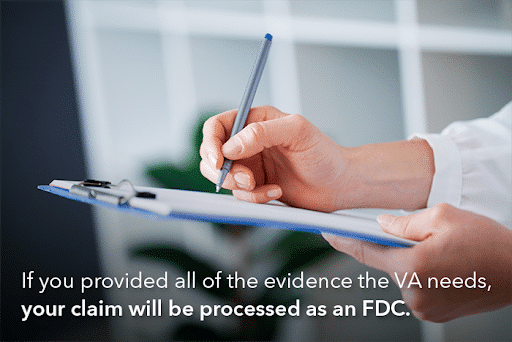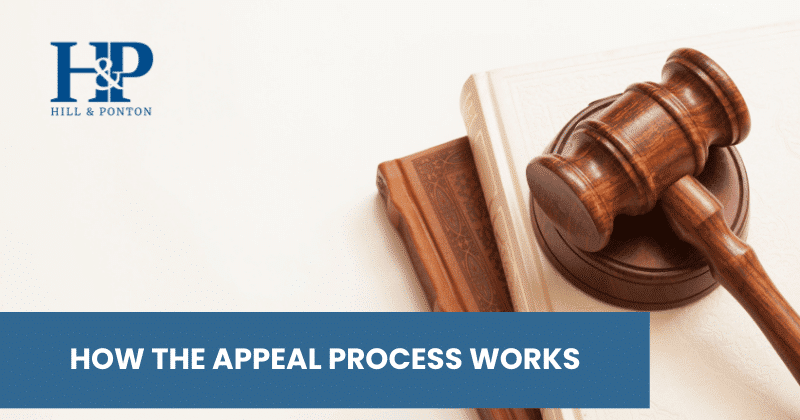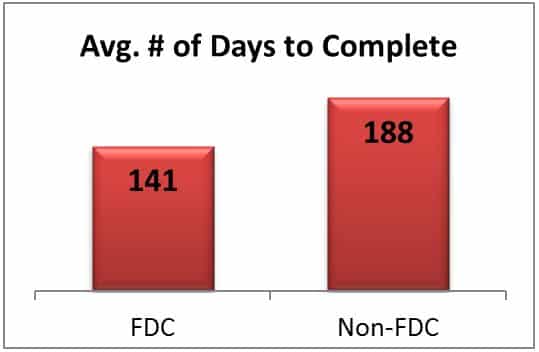How Long Do VA Appeals Take to Process?
Hurry up and wait. Every current and prior service member knows this famous motto, no matter what branch they served in.
Unfortunately, this way of life does not end after separation from the military if you plan on filing a disability claim through the Department of Veterans Affairs.
When filing a claim, the process to show service connection and submit the right VA forms can be complicated. And after this process, veterans are met with long wait times.
Wait times for receiving an initial decision on your claim can take about a year or more, and if you need to appeal the decision, it can be multiple years before you begin receiving monetary VA disability benefits.
While appealing to the Board of Veterans’ Appeals is an opportunity to present new evidence for your VA claim, the wait time can make it seem like your VA disability compensation is out of reach.
However, knowing the details of how the appeals process works can help to alleviate some of the frustrations when it comes to the waiting game with the VA.

Where Does My Claim Go?
First, it is important to know where your documents are going when begin to file a VA claim.
Within the VA system, there are 59 VA Regional Offices (RO) that receive the documents pertaining to a claim.
Basically, there is roughly one RO in each state that is handling the claim for every veteran living within that state. Therefore, it can be easy to imagine that they experience a bit of a backlog.
I Filed My Claim, Now What?
After you file your initial claim on a VA-526EZ, the RO corresponding to your area will issue a VCAA (Veterans Claims Assistance Act) Notice.
This notice informs you that the VA is working on your claim and will mention any other evidence that they may need you to submit.
Once you receive this notice, you have 30 days to submit any other documents that you want reviewed with your claim.
Now, the major waiting process begins. After the VCAA Notice, the next thing you should receive from the VA is your rating decision (RD), which can take over 500 days depending on your specific RO.
This decision could be a grant of the disabilities that you claimed, with a disability rating percentage and the benefits you will receive, or it could be a denial of your claim.
If you wish to appeal the RD, whether it was a grant or denial, you have up to one year to submit a notice of disagreement (NOD).
Along with the NOD, you can also submit any further evidence that you feel counteracts the VA’s reasoning for their decision.
You can also state whether you want a decision review officer (DRO) to review your claim.

Once you disagree with your first RD, the VA will then issue another decision, either a granted RD or a statement of the case (SOC), which is another denial of your claim.
Unfortunately, it can take the VA another year to a few years to issue a second RD or an SOC.
If you wish to further appeal your claim, you are required to submit a VA Form 9 (Appeal to Board of Veteran’s Appeals) within 60 days of receiving your RD or SOC.
This form will act as your substantive appeal.
By this point, it should be easy to see the fundamentals of hurry up and wait; veterans filing a claim are only give 30 days, one year, and 60 day deadlines at the various points in the claims process, but the VA has no deadline to issue a RD.
It is important, though, to keep in mind the number of ROs versus the number of veterans making a claim.
After you submit your VA Form 9 appealing the RO’s second decision or SOC, the RO will issue you a 90 day letter stating that the Board of Veterans Appeals (BVA) has received your case.
With the 90 day letter, you have 90 days to submit any additional evidence for the BVA to consider in reviewing your claim.
From that point, it becomes another waiting game waiting for the BVA to issue their decision, which may take up to, or even exceed, three years.
Keep in mind that the Veterans Appeals Improvement and Modernization Act of 2017 simplified this process.
The new system allows veterans to choose either a higher-level review, supplemental claim, or board review lane when making an appeal.
While the new claims may take less time to appeal than those before, the above wait times are likely to apply.

So, Why Should I Bother?
Unfortunately, the process to appeal a VA disability claim decision can become a long circle of decisions and appeals until you receive the benefits that you are entitled to.
These long wait times can become extremely frustrating and may even deter you from filing a claim, or appealing the decision, but in the end, the outcome can be worth the wait.
The effective date for which you will start receiving benefits for your granted disabilities will go back to the date of the original claim on your first VA-526EZ.
For example: If you filed your original claim in 1998 and after the entire appeals process you received your rightful decision in 2004, you would receive six years of back pay, plus recurrent monthly benefits!

Can I Expedite My Claim?
Sure, there are a few ways to help speed up the process and move your claim at a faster pace.
- Filing a Fully Developed Claim (FDC)
- When you originally file, you can file your claim using the fully developed claim process. This means that you would submit all evidence and service records pertaining to your disabilities with your VA-526EZ. If the VA feels that you provided all of the evidence they need, your claim will be processed as an FDC. Visit the VA’s website to learn more about submitting a fully developed claim.
- Certain personal circumstances, such as:
- Advanced age
- Chronic illness
- Severe financial hardship
Have Questions About Appealing Your Claim or Understanding How the Claims Process Works?
The attorneys at Hill & Ponton are here to support you with appealing a claim.
If you are intending to appeal a denied claim, you can contact us for an evaluation and we can help you with this process.
Get a Free Case Evaluation
In service of our nation, you gave everything you had. You sacrificed your comfort, your peace, and sometimes even your well-being. If the VA denied your rightful benefits, contact us today.
Get Started


